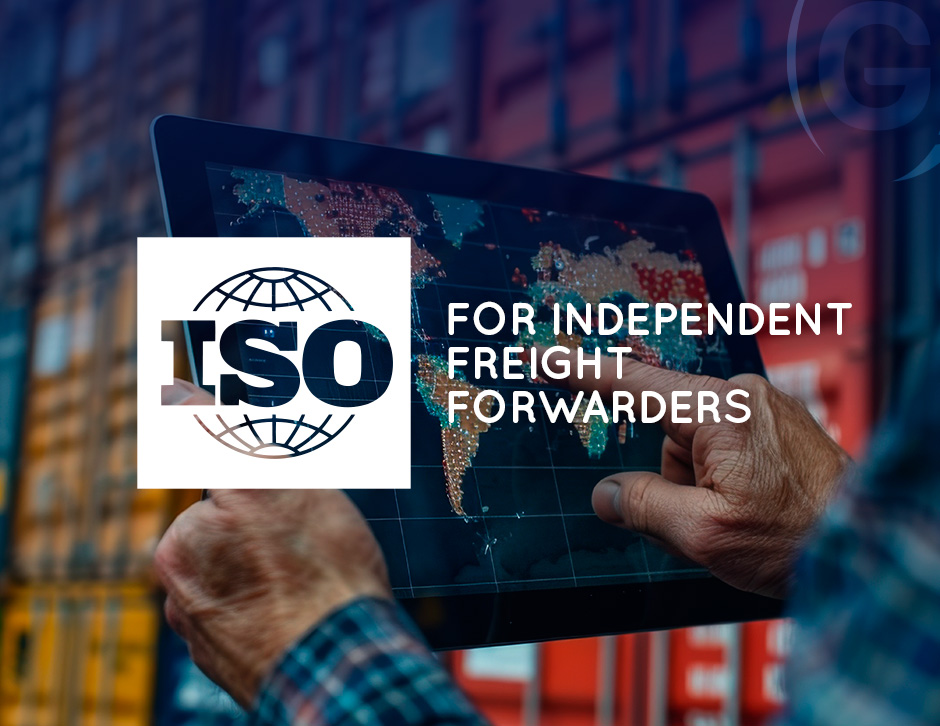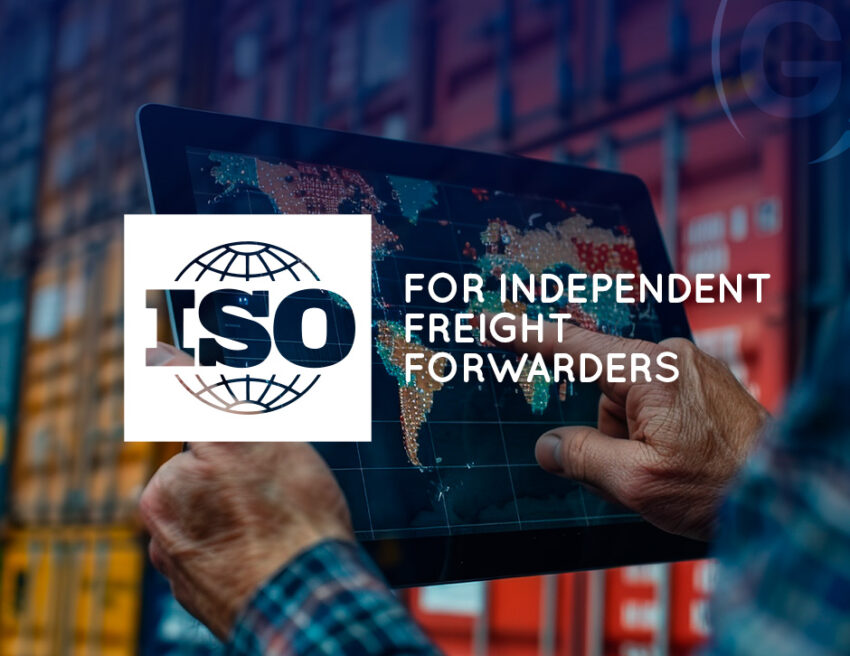ISO certification is a prestigious mark of quality and reliability that holds significant value in the transportation and logistics industry. As an internationally recognized standard, it ensures that companies adhere to the highest international best practices, which fosters trust and confidence among clients and partners. For independent freight forwarders, maintaining ISO certification transcends merely holding a credential—it is a demonstration of a steadfast commitment to excellence, continuous improvement, and customer satisfaction. Keep reading today’s blog to find out why ISO certification matters and how independent freight forwarders can maintain their certification to stand out in a competitive market.

Why ISO Certification Matters
Operational Excellence
Achieving ISO certification is not a one-time effort; it requires the implementation of robust processes and systems. For freight forwarders, this means streamlining operations, reducing errors, and enhancing overall efficiency. ISO standards, such as ISO 9001, provide a structured framework that helps in identifying inefficiencies and optimizing processes. This leads to more effective operations and improved service delivery, which is crucial for maintaining a strong market position.
Enhanced Credibility and Trust
ISO certification is a powerful tool for building credibility and trust. In a highly competitive industry like freight forwarding, where reliability and efficiency are paramount, having ISO certification sets a company apart. It serves as a tangible proof that the freight forwarder adheres to stringent quality management, safety, and operational standards. This external validation helps in establishing a competitive edge and reassures clients and partners of the company’s commitment to high standards.
Customer Satisfaction
At its core, ISO certification focuses on meeting customer requirements and improving service quality. For freight forwarders, this translates into enhanced customer service, higher satisfaction levels, and increased client retention. By adhering to ISO standards, companies ensure that they consistently deliver high-quality services that meet or exceed client expectations, thereby building long-term relationships and a strong reputation.
Regulatory Compliance
In many cases, clients and partners require ISO certification to meet regulatory and industry standards. Maintaining ISO certification ensures that freight forwarders comply with these requirements, which helps in avoiding potential legal and compliance issues. This not only mitigates risks but also positions the company as a reliable and trustworthy partner in the logistics industry.
How Independent Freight Forwarders Can Maintain ISO Certification
Maintaining ISO certification is a continuous process that involves a deep commitment to quality management and process improvement. Here are essential steps independent freight forwarders should take to uphold their ISO certification:
Focus on Continuous Improvement
ISO certification emphasizes the importance of continuous improvement. Freight forwarders should foster a culture that encourages ongoing enhancement by seeking feedback, analyzing performance data, and implementing changes to improve processes and services. This might involve investing in new technology, refining operational procedures, or enhancing staff training. Continuous improvement helps in maintaining high standards and adapting to evolving industry demands.
Abide By ISO Standards
ISO standards are not static; they evolve over time to reflect new practices and technologies. To maintain certification, independent freight forwarders must stay updated on changes to the ISO standards they are certified against. For instance, if your certification is based on ISO 9001:2015, ensure that your quality management system aligns with the latest requirements. Regularly reviewing and revising internal procedures to stay compliant with updated standards is crucial for ongoing certification.
Engage with Certification Bodies
Open communication with your certification body is essential for maintaining certification. Certification bodies provide valuable guidance, support, and feedback that can help in ensuring compliance. Schedule regular reviews and updates with them to address any concerns and verify that all requirements are being met. This engagement helps in staying aligned with certification standards and fosters a collaborative relationship with the certification body.
Maintain Documentation and Records
Accurate documentation and record-keeping are vital for ISO compliance. Maintaining detailed records of processes, procedures, audits, training, and corrective actions provides evidence during external audits and helps track progress and improvements. This documentation also supports transparency and accountability, which are key components of ISO standards.
Conduct Regular Internal Audits
Internal audits are a cornerstone of ISO certification maintenance. They help identify non-compliance issues, potential risks, and areas for improvement. Implementing a regular audit schedule ensures that audits are thorough, objective, and effective. Document the findings of these audits and take corrective actions to address any issues identified. This proactive approach not only helps in maintaining compliance but also fosters a culture of continuous improvement.
Provide Ongoing Training and Development
Employees play a critical role in maintaining this certification. Regular training ensures that staff are well-informed about ISO standards and their implications for their roles. Investing in training programs that cover quality management practices, compliance requirements, and any updates related to ISO standards is essential. Well-trained employees contribute to better implementation of standards and help in maintaining overall certification.
Address Non-Conformities Promptly
Addressing non-conformities effectively and promptly is crucial for maintaining ISO certification. When issues are identified, develop a corrective action plan to resolve them and prevent recurrence. Regularly review the effectiveness of these actions to ensure that similar issues do not arise in the future. This proactive approach helps in sustaining certification and demonstrates a commitment to continuous improvement.
Conclusion
ISO certification is a valuable asset for freight forwarders, providing enhanced credibility, operational excellence, and improved customer satisfaction. However, maintaining this certification requires a dedicated commitment to adhering to standards, engaging in continuous improvement, and ensuring alignment with ISO requirements. By staying updated on standards, conducting regular audits, fostering a culture of improvement, investing in staff training, maintaining accurate documentation, engaging with certification bodies, and addressing non-conformities, freight forwarders can uphold their certification and continue to showcase their dedication to quality and excellence in the logistics industry.
Embracing these practices not only helps in maintaining certification but also positions independent freight forwarders as leaders in the industry, committed to delivering exceptional services and continuously enhancing their operations.


